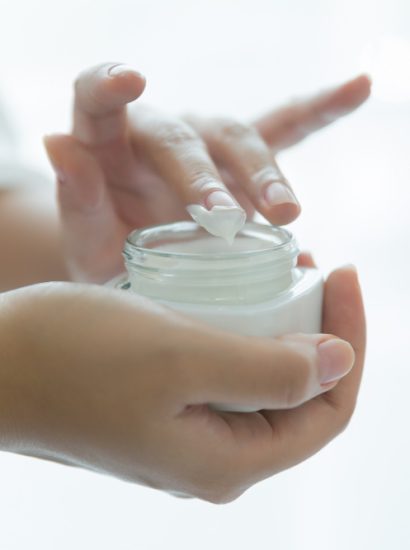Body odor and sweating are natural human processes — but most of us seek to control them for hygiene and comfort. That’s where deodorants and antiperspirants come into play. While often used interchangeably, these two products have very different functions.
In this guide, we break down the differences between anti deodorant vs antiperspirant, explore how each works, and help you choose which one is right for your needs, lifestyle, and skin type.
What Is a Deodorant?
A deodorant is designed to neutralize or mask body odor. It does not stop sweat, but it tackles the bacteria that cause unpleasant smells when sweat interacts with your skin.
How it works:
- Sweat itself is odorless.
- The bad smell comes from bacteria breaking down proteins and lipids in your sweat.
- Deodorants use antibacterial agents, such as triclosan or natural alternatives like tea tree oil, to reduce this bacteria.
- Many also include fragrance to mask odor.
Common types:
- Roll-ons
- Sprays
- Creams
- Natural sticks (aluminum-free)
What Is an Antiperspirant?
An antiperspirant goes a step further by blocking sweat glands to prevent perspiration altogether.
How it works:
- Contains aluminum-based compounds (like aluminum chloride or aluminum zirconium).
- These compounds temporarily plug sweat glands, reducing moisture on the skin.
- Less sweat = less bacteria = less odor.
Antiperspirants often contain deodorant ingredients as well, making many products dual-purpose — but not all deodorants are antiperspirants, and vice versa.
Key Differences Between Anti Deodorant vs Antiperspirant
Here’s a quick comparison of how they differ:
| Feature | Deodorant | Antiperspirant |
| Controls body odor? | ✅ Yes | ✅ Yes (indirectly) |
| Reduces sweat? | ❌ No | ✅ Yes (blocks sweat glands) |
| Contains aluminum? | ❌ No | ✅ Yes |
| Regulated by FDA? | ❌ No (cosmetic) | ✅ Yes (classified as a drug) |
| Ideal for sensitive skin? | ✅ Often gentler | ⚠️ Can be irritating for some |
Takeaway: Deodorants are for odor, antiperspirants are for sweat.
Pros and Cons of Each Product
Deodorant Pros:
- Aluminum-free: Preferred by those avoiding aluminum for health or environmental reasons.
- Gentler on skin: Often contains soothing ingredients and is less likely to cause irritation.
- Natural options available: Baking soda, charcoal, and essential oils offer clean alternatives.
Deodorant Cons:
- Does not stop sweat: If you sweat heavily, odor may still develop during the day.
- Needs frequent reapplication: Especially in hot or humid weather.
Antiperspirant Pros:
- Effectively controls sweat: Ideal for those with hyperhidrosis (excessive sweating).
- Reduces odor-causing bacteria: Less sweat means less smell.
- Long-lasting protection: Many offer 24–48 hour coverage.
Antiperspirant Cons:
- Contains aluminum: Some users prefer to avoid it due to potential (but unproven) health concerns.
- May clog pores or irritate skin: Especially after shaving or with sensitive underarms.
- Can leave residue: White marks on clothes are a common issue.
The Debate: Is Aluminum Safe in Antiperspirants?
One of the biggest points of debate in the anti deodorant vs antiperspirant conversation is the use of aluminum compounds in antiperspirants.
Common concerns:
- Link to breast cancer: Some believe that aluminum in antiperspirants may be absorbed into the body and contribute to breast cancer, especially since it’s applied near breast tissue.
- Alzheimer’s disease: Older studies speculated a connection between aluminum and Alzheimer’s, though no conclusive evidence has been found.
What experts say:
- According to the American Cancer Society and the FDA, there is no proven link between aluminum-based antiperspirants and breast cancer.
- Aluminum remains approved and regulated as a safe ingredient in over-the-counter antiperspirants.
That said, if you prefer to avoid it, deodorants offer aluminum-free options, and more brands now offer aluminum-free antiperspirants (though their sweat-blocking efficacy may vary).
How to Choose Between Deodorant and Antiperspirant
Your ideal choice depends on your lifestyle, sweat levels, skin sensitivity, and personal values.
Choose a Deodorant if:
- You sweat moderately but want to smell fresh.
- You prefer natural or aluminum-free products.
- You have sensitive skin or shaving irritation.
- You’re focused on odor control, not sweat reduction.
Choose an Antiperspirant if:
- You sweat heavily or excessively.
- You need long-lasting dryness for workouts or events.
- You want dual odor and moisture protection.
- You’re comfortable using aluminum-based products.
Some people use both:
- Deodorant in the morning for freshness.
- Antiperspirant at night (when it’s most effective on dry skin).
- Or switch depending on the day’s demands (e.g., deodorant on weekends, antiperspirant during work).
Conclusion
When it comes to anti deodorant vs antiperspirant, the real difference boils down to one key question:
“Do you want to smell better, sweat less — or both?”
- If odor is your main concern, go for a deodorant.
- If wetness bothers you or you have hyperhidrosis, try an antiperspirant.
- If you want both benefits, choose a combo product or alternate as needed.
Ultimately, there’s no one-size-fits-all. The best choice is the one that fits your body’s needs, your lifestyle, and your comfort level. Don’t be afraid to experiment until you find what works best for you.
FAQs
1. Can I use deodorant and antiperspirant together?
Yes! You can use antiperspirant at night (for best absorption) and apply deodorant in the morning for freshness and fragrance. Some products even combine both functions.
2. Is natural deodorant better than antiperspirant?
“Better” depends on your needs. Natural deodorants avoid aluminum and harsh chemicals, but they won’t stop sweating. Antiperspirants are more effective for heavy sweaters.
3. Is it safe to use antiperspirants every day?
For most people, yes. Antiperspirants are approved and regulated by the FDA. However, if you experience irritation, consider reducing frequency or switching to a sensitive formula.
4. Why do some antiperspirants cause irritation or bumps?
This can happen due to:
- Shaving before application
- Fragrance sensitivity
- Aluminum compounds clogging pores
Try applying antiperspirant at night on dry skin, and look for fragrance-free or sensitive-skin options.
Does sweating more without antiperspirant mean my body is detoxing?
No. The idea of your underarms “detoxing” from antiperspirant is a myth. Increased sweating after stopping antiperspirants is simply your glands returning to normal function.
Also read: The Ordinary Multi-Peptide Serum: Benefits, How to Use & Full Review




